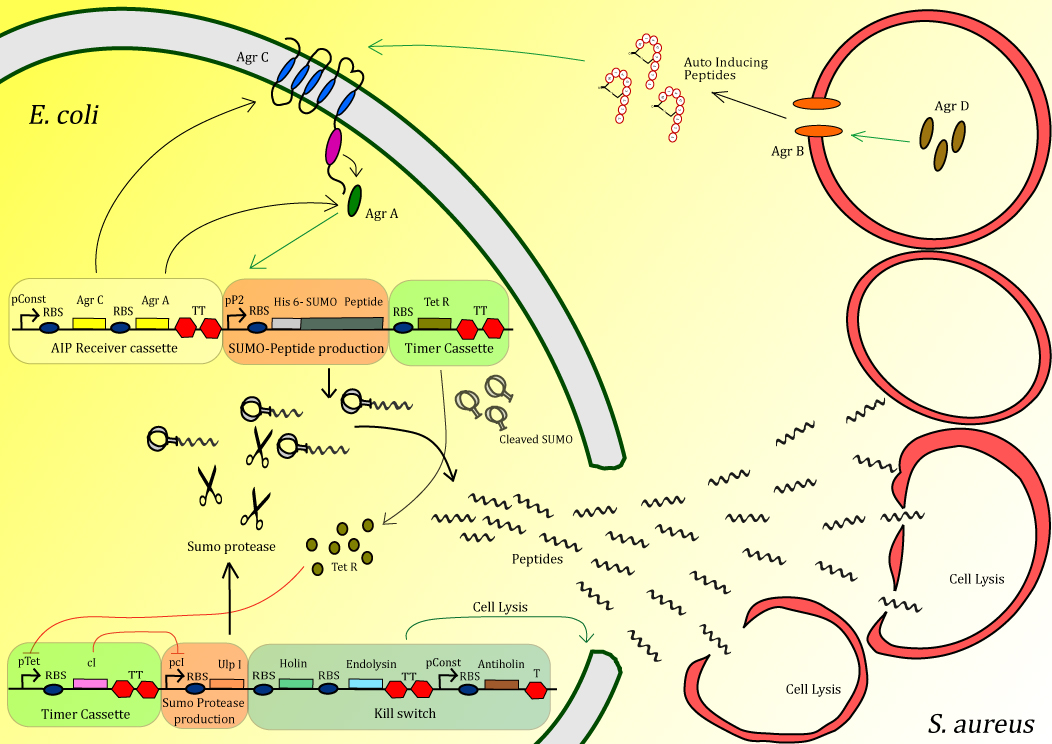Team:TU-Delft/Project
From 2013.igem.org

Overview
Methicillin-Resistant Staphylococcus aureus is causing major problems in hospitals and nursing homes. It causes infections, over 0.5 million in 2002 in the United States and puts patients with open wounds and weakened immune systems at great risks. It is so problematic because it is very difficult to treat; these bacteria have developed resistance against most antibiotics available. Several newly discovered strains of MRSA show antibiotic resistance even to vancomycin and teicoplanin, which are now the one of the last antibiotics useful against MRSA. Although a lot of research is done on alternative treatments, not much success has been booked yet. One of the more promising methods though, seems to be by the use of antimicrobial peptides.
Therefore, our project focusses on designing an E. coli that can detect MRSA in order to locally produce and deliver antimicrobial peptides against gram-positive bacteria. Our E. coli will detect S. aureus by its own quorum sensing system, and at that moment inactivated antimicrobial peptide are started to be produced. With the use of a timer the peptide will be activated by cleavage of an inactivating tag. With the use of a timer, high concentrations of peptide can be delivered very locally in order to efficiently kill MRSA. In order to ensure the safety of the system, the peptide-activating protease is combined with a kill switch that will kill our E. coli.
This project is novel because we aim to fight a life threatening, hard to cure disease by incorporating and combining components of multiple kingdoms into one organism. We let a gram-negative bacterium sense the communication molecules of gram-positive bacteria and respond to this with an animal innate immune response. The protease activation of the antimicrobial peptide is from fungal origin.

Figure 1: Schematic diagram of the complete system
 "
"
